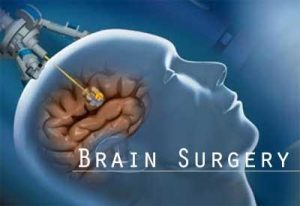- Home
- Editorial
- News
- Practice Guidelines
- Anesthesiology Guidelines
- Cancer Guidelines
- Cardiac Sciences Guidelines
- Critical Care Guidelines
- Dentistry Guidelines
- Dermatology Guidelines
- Diabetes and Endo Guidelines
- Diagnostics Guidelines
- ENT Guidelines
- Featured Practice Guidelines
- Gastroenterology Guidelines
- Geriatrics Guidelines
- Medicine Guidelines
- Nephrology Guidelines
- Neurosciences Guidelines
- Obs and Gynae Guidelines
- Ophthalmology Guidelines
- Orthopaedics Guidelines
- Paediatrics Guidelines
- Psychiatry Guidelines
- Pulmonology Guidelines
- Radiology Guidelines
- Surgery Guidelines
- Urology Guidelines
New smart needle to make brain surgery safer

Melbourne : Scientists have developed a new smart needle with a tiny camera that allows surgeons to see at-risk blood vessels and avoid injuring them, an advance that may make brain surgery safer.
The tiny imaging probe, encased within a brain biopsy needle, lets surgeons 'see' blood vessels as they insert the needle, allowing them to avoid causing bleeds that can potentially be fatal.
"We call it a smart needle. It contains a tiny fibre-optic camera, the size of a human hair, shining infrared light to see the vessels before the needle can damage them," said Robert McLaughlin, professor at the University of Adelaide.
"And what's really exciting is the computer smarts behind this so that the computer itself recognises the blood vessel and alerts the surgeon," McLaughlin said.
Over the past six months, the smart needle has been used in a pilot trial with 12 patients undergoing neuro surgery at Sir Charles Gairdner Hospital in Western Australia.
The smart needle will be ready for formal clinical trials next year, researchers said.
The team are in discussions with a number of international medical device manufacturers and are seeking to manufacture the smart needles in Australia.
"To have a tool that can see blood vessels as we proceed through the brain would revolutionise neurosurgery," said Christopher Lind, Consultant Neurosurgeon at Sir Charles Gairdner Hospital and the University of Western Australia,
"It will open the way for safer surgery, allowing us to do things we've not been able to do before," said Lind, who led the clinical trial.
blood vesselsbrain surgeryDr Christopher LindRobert McLaughlinSir Charles Gairdner Hospitalsmart needleUniversity of Adelaide
Source : PTINext Story
NO DATA FOUND

Disclaimer: This site is primarily intended for healthcare professionals. Any content/information on this website does not replace the advice of medical and/or health professionals and should not be construed as medical/diagnostic advice/endorsement or prescription. Use of this site is subject to our terms of use, privacy policy, advertisement policy. © 2020 Minerva Medical Treatment Pvt Ltd